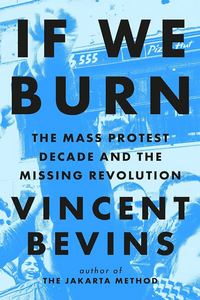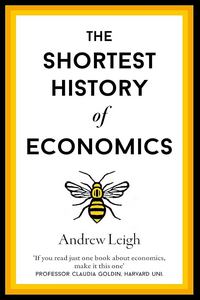Book reviews – Bevins, Leigh, Kuper

If We Burn. The Mass Protest Decade and the Missing Revolution. By Vincent Bevins. Wildfire, 2023. 336pp.
The years 2010 to 2020 saw a possible record number of protest movements over a single decade in different parts of the globe. In many places change of one kind or another was being sought. This book chronicles and seeks to make sense of many of the movements in that ‘mass protest decade’. These include protests that took place in the so-called ‘Arab Spring’ countries (Egypt, Tunisia, Bahrain, Yemen), in Latin America (Brazil, Chile), in Hong Kong, South Korea, Ukraine and Turkey, and also, if fleetingly, in Algeria, Bolivia, Syria and Libya as well as via the Occupy Wall Street movement. What is found by the author as a common feature of almost all of them is that they ‘failed’, in the sense that the activists didn’t get what they wanted and in some instances (eg, Egypt, Brazil, Hong Kong) unleashed outcomes that were worse than what existed before. The author’s detailed knowledge of these events arises from his actually being present on the ground in some countries in his role as a foreign journalist for an American newspaper (The Los Angeles Times) but also of multiple personal interviews conducted later in many countries with key protagonists of the happenings in question. This result is a wickedly intricate account that takes us fascinatingly close to the lived experience of those directly involved.
In searching for answers to the failures he catalogues, the factors the author tends to see as most important are faulty methods of organisations and too much ‘horizontalism’ (ie, lack of hierarchical leadership). But, despite the grasp he has of the social and historical background of the territories in question, both through research and personal experience, and his presence on the ground in some of them, this book suffers from a failure on the part of the author to get to the bottom of the underlying nature of and reasons for these protests. He seems determined to frame them as attempts at fundamental social change, even revolution, on the part of those involved, yet if examined closely, a better explanation for the protests and the street demonstrations is a far less radical one. They are largely attempts by people feeling oppressed, disadvantaged or outraged by one aspect or another of how their society is run to try and push those who govern into ways of managing the system they live under more benignly, more ‘fairly’. But key is the reality that they are looking for that system – capitalism – to be reformed, not overthrown.
Throughout the history of capitalism, in different parts of the world, such protests seeking piecemeal changes have come and gone and will continue to do so, sometimes achieving small improvements but, inevitably, failing to change the basic nature of the system we live under. Their precise targets vary, but what unites them is that they involve tinkering at the edges of the ongoing problems and crises that capitalism throws up. Above all, they do not stem from a consciousness that the buying and selling system needs to be replaced by a different one of voluntary cooperation and free access to all goods and services – which we would call socialism. So the decade of false dawns the author delves into here is only actually part of a century or more of similar campaigns aimed at trying to make capitalism work in ways that run counter to its needs and its nature.
A further reservation this reviewer would have is the author’s ‘sloppy’ use of the words ‘socialism’ and ‘socialist’, employed as a kind of catch-all to mean either some form of state capitalism or any kind of protest or revolt looking to reform certain aspects of capitalism — to make the lives of workers, the majority class, more liveable within it. So we are told, for example that: the Students for a Democratic Society movement in the US in the 1960s ‘advocated for a more socialist economy’; the fall of the Soviet union led to ‘the rapid collapse of allied socialist states’; Tunisia had taken on ‘elements of Nasser’s socialist model’ and was not the same since ‘the end of Arab Socialism’; and in Hong Kong ‘the movement contained elements that … defended aspects of the old socialist system’.
Despite this, there are moments in this book where the author does show a clear understanding of the system we are up against, one whose purpose, in his own words, is ‘to make all the world’s states porous to international capital and open up all the planet’s resources for extraction and commodification’. And he does also come close to glimpsing the kind of world marketless, leaderless society that would transcend the kinds of problems, constantly and inevitably thrown up by capitalism, that the protests examined here focus on. That glimpse can be found, for example, when he talks about ‘constructing a movement that can stand the test of time, in addition to remaining democratic and accountable’ and ‘a world when artificial distinctions and narrowly self-interested activities melt away’ and … ‘our society truly is participatory’.
HKM

The Shortest History of Economics. By Andrew Leigh, Old Street Publishing, 2024
Thomas Carlyle described economics as ‘the dismal science’. But Carlyle was a racist, writing in 1849, who believed slavery should be reintroduced in the West Indies. The ‘dismal’ view he was attacking was the economics of the time which he saw as regarding all peoples as equal (and not, as is commonly supposed, to the dismal Malthus doctrine of overpopulation and famine). Andrew Leigh’s book on the history of economics is, he tells us, ‘the story of capitalism’. Capitalism is defined as the existence of markets and economics studies how people ‘maximise their wellbeing in the face of scarcity.’ Scarcity is an important assumption made by most economists. Just as the slaves in the markets of the West Indies were subjected to deliberate scarcity, it avoids economists having to confront the artificial scarcity of modern capitalism for wage slaves.
Leigh endorses Thomas Hobbes‘s view of human life as ‘solitary, poor, nasty, brutish, and short’. ’Hobbes was right’, declares Leigh, and he argues that human history has been a long struggle to overcome that condition. With the application of the correct economics, of course. However, Hobbes’s view was not based on anthropological or archaeological evidence but on the English Civil War of 1642 to 1651. He fled to France while the civil war raged and while there wrote Leviathan, published in 1651, from which the above quote is taken. In Hobbes’s hypothetical ‘state of nature’ (that is, human nature) a ’war of all against all’ exists and this calls for an authoritarian state to keep the peace. There can be no doubt that much of human history is a record of struggles, but if Hobbes was correct the ‘war of all against all’ should have meant that we would all still be living in caves, without hope for the future.
The fact that human productivity has increased enormously since settled agriculture took place about 10,000 years ago has mainly been due to the adoption of new technologies, not the following of economics wisdom. Leigh claims that at the turn of the twentieth century the Englishman Alfred Marshall ‘was the world’s most influential economist’. In academia perhaps, but the accolade surely belongs to Karl Marx. Leigh doesn’t mention him, and that’s probably just as well. A running argument of this book is the alleged superiority of capitalism over communism in practice. The 1917 Russian revolution was a ‘communist revolution’. Cuba established a ‘communist dictatorship’. East Germany had ‘communist rule’. North Korea has had ‘decades of communism’. They all failed miserably, of course, but none of those regimes claimed to have established communism. Leigh is by no means alone in making this mistake but it is a serious flaw in his book. So when he writes of Russia and China that they have recently ‘transitioned from communism to capitalism, this is simply not true. No country in the world has claimed to have established communism. Ever.
LEW

Good Chaps. By Simon Kuper. Profile Books. 2024. £9.99
This is effectively the sequel to Kuper’s excellent Chums, reviewed in the September 2022 Socialist Standard. The focus this time is the idea that English gentlemen (and it’s usually men) have always been trusted to follow the rules and ‘play the game’, this being an intrinsic tenet of a public school and Oxbridge upbringing. Kuper catalogues how in recent years this seems to have gone very badly awry.
In the 1960s and 70s, these types started to get rather pushed out of politics and the upper echelons of the civil service and other professions, though far from disappearing entirely. Under David Cameron (Eton and Oxford) they started to reassert their natural right to govern again, but with a twist – this being that the gentlemen’s code they had abided by in earlier eras had largely been eroded by the type of ruthless competition that capitalism promotes, and the narcissism and inflated egos that go with it. It found ultimate expression, of course, in the tawdry and shambolic government of Boris Johnson (Eton and Oxford).
Of particular interest to Kuper is the financial base to this political superstructure – exemplified by the buccaneer capitalists that massaged Johnson’s ego so thoroughly and who have sought influence through the connections to which they can buy access. Many of these have been arriviste Mayfair hedge-fund managers and private equity tycoons – the same types of people behind the likes of Reform UK and GB News (often people bizarrely casting themselves as ‘outsiders’ to the traditional City of London and media establishments). And of even more interest still, many in these circles have been Russian oligarchs. As ever, Kuper sums up this type of development beautifully:
‘The moment Russians became British citizens, they were allowed to give to political parties. From about 2012 through 2022, they were the foreign nationality that topped the list of British political donations. Naturally, they gave to the ruling party rather than the powerless Opposition.
The Tories were delighted. It was as if extraterrestrials had stepped out of a spaceship on Parliament Square and inexplicably begun handing them money. The Russian you met over whiskies in 5 Hertford Street was charming. Of course he wasn’t working for the Kremlin! Don’t go all Le Carré on me. And if you did make the effort to perform the most basic due diligence on where his money came from, well that might get in the way of taking it’ (p.94).
Kuper details many instances of Russian donations and influence to the Tory Party. To cite just one example, these include Lubov Chernukhin, whose husband became – at the tender age of 32 – deputy finance minister under Putin and later chair of the Russian state development bank. By 2023, she had donated £2.4 million to the Tories and was a member of the Party’s secretive ‘Advisory Board’ which was restricted to mega-donors who were entitled to monthly meetings with the Prime Minister and Chancellor. This is just one of several instances of this type and in case you are wondering, the embarrassing connections with the father-and-son press magnates the Lebedevs are also described in all their glory.
As the Tories fell from grace in the last couple of years (and some of the Russian connections became embarrassing after Putin’s invasion of Ukraine) the money started to dry up. There’s an interesting chapter on how Labour started to hoover up significant donations before the General Election instead, including from David Sainsbury, Dale Vince and Gary Lubner (of the family that own Autoglass and who reportedly gave £5 million alone). Kuper says Labour’s donors tend to have more of an obvious ideological affinity with them (rather than being people who will simply cosy up to whoever is in power) though it will be fascinating to see whose interests ‘the government of service’ will effectively serve – even if rather more indirectly. We think we can guess.
DAP
